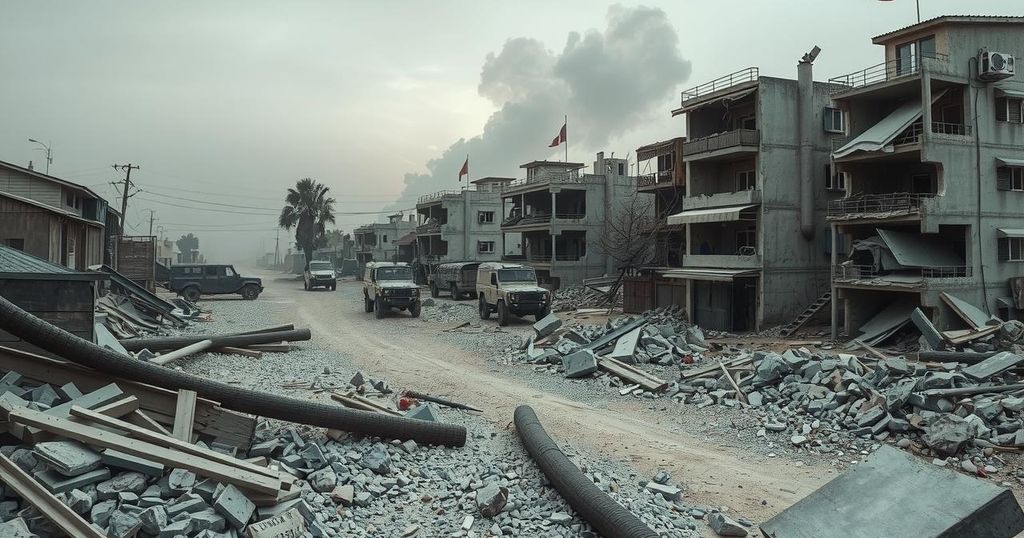Impact of Recent Strikes on Israel-Lebanon Ceasefire Dynamics
Recent strikes have strained the ceasefire between Israel and Hezbollah, initiated by rocket launches from Lebanon. The U.S.- and France-brokered ceasefire has faced challenges as Israel continues airstrikes while Hezbollah denies involvement. Tensions persist amid questions of internal discord within Hezbollah, raising concerns for the future stability of the ceasefire.
The fragile ceasefire between Israel and Hezbollah experienced significant strain following recent rocket launches from Lebanon into northern Israel, prompting Israeli airstrikes in Beirut’s suburbs. This marks the second rocket attack in a week, following a period of relative calm. Despite Hezbollah’s denial of involvement in these incidents, the tensions reignited concerns among residents of both Beirut and Israeli border communities, who recently returned to their homes following earlier displacements due to conflict.
The ceasefire deal established post-war conditions after Hezbollah initiated rocket fire on October 8, 2023, responding to Hamas’s attack on Israel. The subsequent low-level conflict escalated to widespread warfare by September 2024, resulting in numerous casualties, including the majority of Hezbollah’s leadership. The international agreement called for a withdrawal of both parties from southern Lebanon, moderated by an enhanced Lebanese army and UN peacekeepers, while compelling Lebanese authorities to prevent attacks from Hezbollah on Israel.
Currently, the ceasefire has not entirely halted hostilities, as Israel has conducted regular airstrikes in southern Lebanon, citing the necessity to target Hezbollah positions to prevent rearmament. Notably, despite having extended deadlines for troop withdrawal, Israeli forces remained in strategic locations along the border, prompting public protests against their presence. Meanwhile, UNIFIL reported over 650 cross-border projectiles since the ceasefire, predominantly from Israel into Lebanon, alongside numerous military activities in southern Lebanon.
The recent rocket launches, which Hezbollah denies, have been attributed by some analysts to Palestinian factions, considering their primitive launching method. Reports suggest an internal disagreement may exist within Hezbollah regarding its current passive leadership approach towards Israeli operations. Observers express skepticism about Hezbollah’s claim of innocence, suspecting a possible tacit approval for the rocket launches from within the group.
Post-strike, Israel’s military campaign in Lebanon intensified, with officials declaring a zero-tolerance policy for attacks on Israeli communities. Prime Minister Netanyahu reassured that retaliatory actions would continue against perceived threats. In light of the current situation, analysts note a shift in Israel’s confidence, potentially emboldened by previous international support. Although Hezbollah lacks the resources for a sustained offensive, it risks further undermining the ceasefire if aggressive Israeli actions persist.
The ongoing tensions following the most recent strikes between Israel and Lebanon underscore the precarious nature of the ceasefire in the region. While both parties have faced pressure, the prospect of renewed conflict looms if provocations continue from either side. The situation remains delicate and may lead to a breakdown of the ceasefire if a balance is not achieved, making monitoring and diplomatic efforts critical in the upcoming period.
Original Source: www.wsls.com




Post Comment